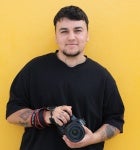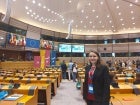Breadcrumb
Stories
Topic
- Show all (1276)
- Youth (-) (16)
- Capacity development (-) (2)
- Monitoring and evaluation (-) (2)
- Ending violence against women and girls (72)
- Gender equality and women’s empowerment (45)
- Anti-violence interventions (41)
- Gender discrimination (38)
- Gender equality and inequality (38)
- Domestic violence/interpersonal violence (36)
- Access to justice and legal protection (33)
- Legal assistance (29)
- Laws, legislation (26)
- Gender-responsive budgeting (24)
- Primary prevention (24)
- Sexual harassment (24)
- Feminicide/femicide (23)
- Service delivery (23)
- Economic empowerment (22)
- Rape/sexual assault (21)
- Employment (20)
- Shelters (20)
- Rural women (19)
- Entrepreneurship (18)
- Decision-making (16)
- Gender power relations (15)
- Women’s rights (15)
- COVID-19 (14)
- Financing for gender equality (13)
- Gender mainstreaming (13)
- Civil society (12)
- Gender, culture and society (12)
- Men and boys (masculinity) (12)
- Political empowerment (12)
- Access to basic services (11)
- Adolescents (11)
- Businesses and foundations (11)
- Girls (11)
- Human rights (11)
- UNiTE campaign (11)
- Beijing Platform for Action (10)
- Civil society participation (10)
- Peace and security (10)
- Safe Cities and Safe Public Spaces (10)
- Training (10)
- Women with disabilities (10)
- Convention on the Elimination of All Forms of Discrimination against Women (CEDAW) (9)
- Financial resources (9)
- Information and communications technology (ICT) (9)
- Leadership and political participation (9)
- National planning (9)
- Partnerships (9)
- Gender stereotypes (8)
- Governance (8)
- Innovation and technology (8)
- Institutional mechanisms (8)
- Peacebuilding (8)
- Social protection (8)
- Women farmers (8)
- Citizen engagement (7)
- Gender statistics (7)
- Generation Equality (7)
- Government contributors (7)
- Productive resources (7)
- Religion (7)
- Science and technology for development (7)
- Sports (7)
- Trafficking/sexual exploitation (7)
- Women’s movements (7)
- 2030 Agenda for Sustainable Development (6)
- Child marriage (6)
- Communications and media (6)
- Electoral systems and processes (6)
- Lesbian, gay, bisexual, transgender, intersex (LGBT) rights (6)
- Markets (6)
- Political violence (6)
- Sex-disaggregated data (6)
- Sustainable Development Goals (SDGs) (6)
- Unpaid work (6)
- Accountability (5)
- Gender data production and collection (5)
- Governance and national planning (5)
- Rural development (5)
- Traditional media (5)
- Constitutions and legal reform (4)
- Gender data gaps (4)
- Gender data use and accessibility (4)
- Gender wage gap (4)
- Health (4)
- Intergovernmental processes (4)
- Land and property (4)
- New media (4)
- Poverty (4)
- Public administration (4)
- Rule of law (4)
- Schooling (4)
- Accountability in the UN system (3)
- Climate change (3)
- Crisis response and recovery (3)
- Education (3)
- Environmental protection (3)
- Gender equality indicators (3)
- Health care services (3)
- Inheritance rights (3)
- Living conditions (3)
- Media leadership (3)
- National mechanisms (3)
- National statistical systems (3)
- Parliamentary development (3)
- UN Security Council resolution 1325 (3)
- UN system coordination (3)
- Coordination, knowledge management (2)
- Disaster risk reduction (2)
- Food security (2)
- Fundamental freedoms (2)
- Fund for Gender Equality (2)
- Harmful practices (2)
- Humanitarian action (2)
- Human rights–based approach (2)
- Macroeconomic policies (2)
- Planning and monitoring (2)
- Sexual and reproductive health and rights (2)
- UN Security Council resolutions (2)
- Urban development (2)
- Åsa Regnér, Deputy Executive Director for Policy, Programme, Civil Society and Intergovernmental Support (1)
- Children’s rights (1)
- Commission on the Status of Women (1)
- Executive Director (1)
- Financial and economic crisis (1)
- Green economy (1)
- Literacy (1)
- Local development (1)
- Maternal health (1)
- Migration (1)
- Monitoring, evaluation and reporting (1)
- Peace processes (1)
- Public sector reform (1)
- Sexuality (1)
- Temporary special measures, affirmative action (1)
- UN Trust Fund to End Violence against Women (1)
Region
Country
1 - 19 of 19 Results
Date:
David Cuka, a 31-year-old trailblazer from Tirana, Albania, joined the UN Women's "Imagine" campaign aiming to raise awareness and challenge cultural stereotypes and gender-based discrimination in Albania and the Western Balkans.
Date:
Young peacebuilders from the Western Balkans participated in a two-day training to strengthen their capacities on the Women, Peace and Security (WPS) and Youth, Peace and Security (YPS) agendas.
Date:
Ema Meçaj is a 19-year-old activist from Albania, currently pursuing a degree in medicine at the University of Medicine in Tirana. A dedicated advocate for human rights, gender equality, and climate action, she recently co-moderated the regional youth consultation from December 13 to 14, 2023, in preparation for the 68th session of the Commission on the Status of Women (CSW68). In this Interview, Ema Meçaj reflects on the youth consultations, outlines the key issues for this year’s CSW, and emphasizes the vital role of youth in advancing the gender equality agenda.
Date:
The UN Resident Coordinator’s Office and UN Women Albania co-organized an online training on the Gender Equality Marker (GEM) and the Human Rights Marker (HRM). The overall aim of the training was to ensure that the GEM and HR Marker scoring will be accurate for the upcoming Joint Work Planning cycle, which will cover the 2024-2025 period. The training was also an important step for ensuring the accuracy of markers is instrumental for adequately score UNCT SWAP Indicator 6.1, which verifies whether adequate resources for gender mainstreaming are allocated and tracked.
Date:
Toxic masculinities, rigid gender stereotypes, hate speech and media representation of traditional gender roles increase the risk of violence, particularly against women, which is considered to be the most widespread form of violence throughout the region – according to a new research supported by UN Women.
Date:
Fake news, misinformation, and hate speech are causing significant harm to mental health, exacerbating social divisions, and eroding trust in public institutions throughout the Western Balkans. Marginalized groups, particularly women and girls, are frequently targeted by hate speech. Of particular concern is the role of social media, which has become a fertile breeding ground for disinformation.
Date:
130 youth participated in UN Women consultations organized in Albania, Bosnia and Herzegovina, Kosovo*, Serbia, and North Macedonia.
Date:
More than fifty young people from the region engaged virtually in a constructive dialogue addressing the root causes of gender inequalities and its implication for social cohesion. This was the first regional consultation organized by UN Women as part of UN’s ‘Youth 4 Inclusion, Equality & Trust’ project supported by the UN Secretary-General’s Peacebuilding Fund, contributing to promoting gender equality as a driver for social cohesion and reconciliation in the Region.
Date:
On 24 February 2023, the Government of Albania and UN Women hosted a sub-regional consultation for the Western Balkans and Türkiye, in preparation for the 67th session of the Commission on the Status of Women (CSW67). The consultation provided an opportunity to discuss the gender gap in digital access, women's underrepresentation in certain professions, women’s entrepreneurship, decision-making in the digital transformation, as well as online discrimination and violence in the region.
Date:
UN Women in Albania, the Office of the UN Resident Coordinator (RCO), and the UN Women Regional Office for Europe and Central Asia organized a training on Monitoring & Evaluation and Gender Data dedicated to UN staff involved in programme management.
Date:
Earlier this year, young Albanian activists got together and developed a “Call to youth-driven and gender responsive climate and environmental action in Albania,” with the support of UN Women Albania, the Tirana European Youth Capital and the Resource Environmental Centre (REC) Albania.
Date:
Over 1200 students around Albania were trained boosting their the self-esteem and strengthening their safety.
Date:
It will serve as a manifesto and will be circulated amongst institutions to push the climate and environmental justice agenda in Albania.
Date:
UN Women, in collaboration with the Municipality of Tirana and the OSCE Presence in Albania, organized a Youth Forum on Gender Equality, Climate Change and the Environment, in the context of celebrating Tirana as the 2022 European Youth Capital.
Date:
Jutta Benzenberg is a well-known German photographer that has been living in and photographing Albania for more than 30 years. She collaborated with UN Women in Albania during 2021 for the photographic project “I have a dream…”, bringing to attention the dreams of young women in urban and rural areas of the country, including those impacted by the earthquake of 2019.
Date:
Organized by UN Women in partnership with the Center for Openness and Dialogue and with the financial support of the Government of Sweden, the exhibition was opened with a ceremony on International Women’s Day.
Date:
Gresa Hasa is the co-founder and editor in chief of ‘“Shota’” magazine, the first progressive feminist magazine in Albania. She is a strong advocate for women’s rights and has long been on the frontlines of the feminist and student movements in the country.
Date:
The UN Women Rapid Gender Assessment survey revealed that the burden of household and care responsibilities were not distributed evenly, as only 46 per cent of women versus 67 per cent of men in Albania reported receiving help from their partner. Daniela Fejzaj, a 40-year-old information technology professional and mother of two, recalls the endless chores during the COVID-19 lockdown.
Date:
Led by 'Women, Peace and Security’ Coalition, the campaign took place in different universities to raise awareness on security issues and the severe consequences of the circulation of illegal firearms
1 - 19 of 19 Results














